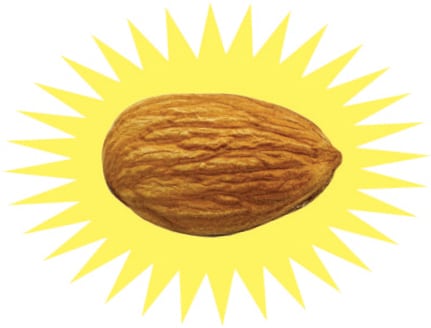Nuts are nutritional powerhouses
Nut-lovers such as squirrels, chipmunks and black bears might not be able to tell you about the nutrition nuts provide, but they know nuts taste good and are good for them. For human beings, most nuts provide significant health benefits, according to nutritionist Sonya Angelone. Each nut provides different nutritional benefits.
Start with a nut grown and plentiful in Tennessee — pecans.
Pecans contain more than 19 vitamins and minerals, including vitamin A, vitamin E, folic acid, calcium, magnesium, phosphorus, potassium, several B vitamins and zinc. One ounce provides 10 percent of the recommended daily value for fiber.
Almonds have more calcium than any other nut, plus nearly 9 grams of heart-healthy monounsaturated fats, 6 grams of protein and 3.5 grams of fiber per ounce.
 Walnuts are rich in polyunsaturated fats, particularly an omega-6 fatty acid called linoleic acid, the most abundant one. They also contain a relatively high percentage of a healthy omega-3 fat called alpha-linolenic acid.
Walnuts are rich in polyunsaturated fats, particularly an omega-6 fatty acid called linoleic acid, the most abundant one. They also contain a relatively high percentage of a healthy omega-3 fat called alpha-linolenic acid.
Pistachios have high levels of vitamins, minerals and antioxidants. They are especially high in vitamin B6, thiamine and copper.
Brazil nuts are high in protein, fiber, selenium, thiamine, copper and magnesium. However, high levels of selenium can be toxic, so watch quantities.
Macadamia nuts contain the most heart-healthy monounsaturated fat per serving.
Cashews are very high in iron, zinc and magnesium.
But there’s a catch. Nuts are high in calories. That is why Angelone recommends limiting consumption to 1 ounce of nuts each day.



